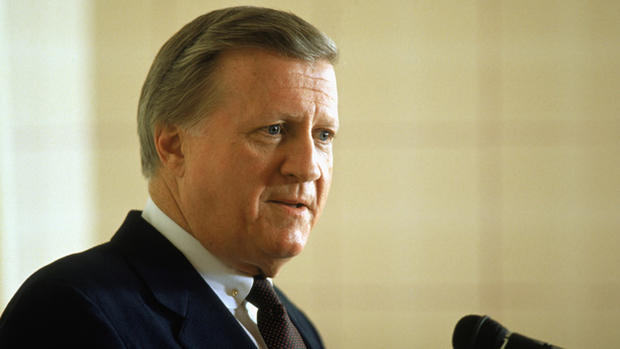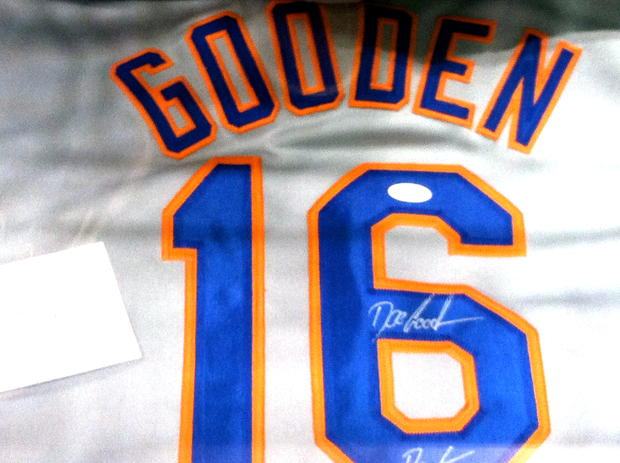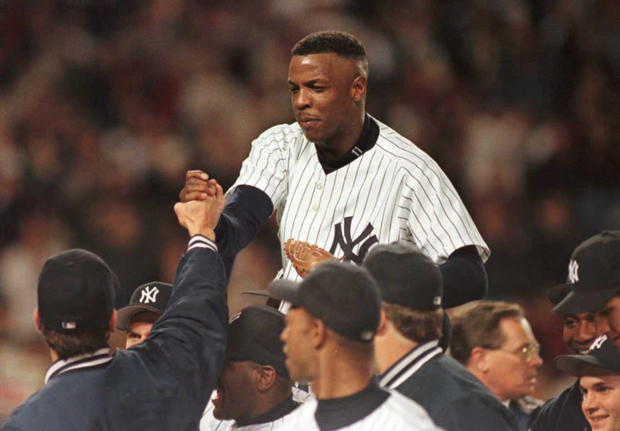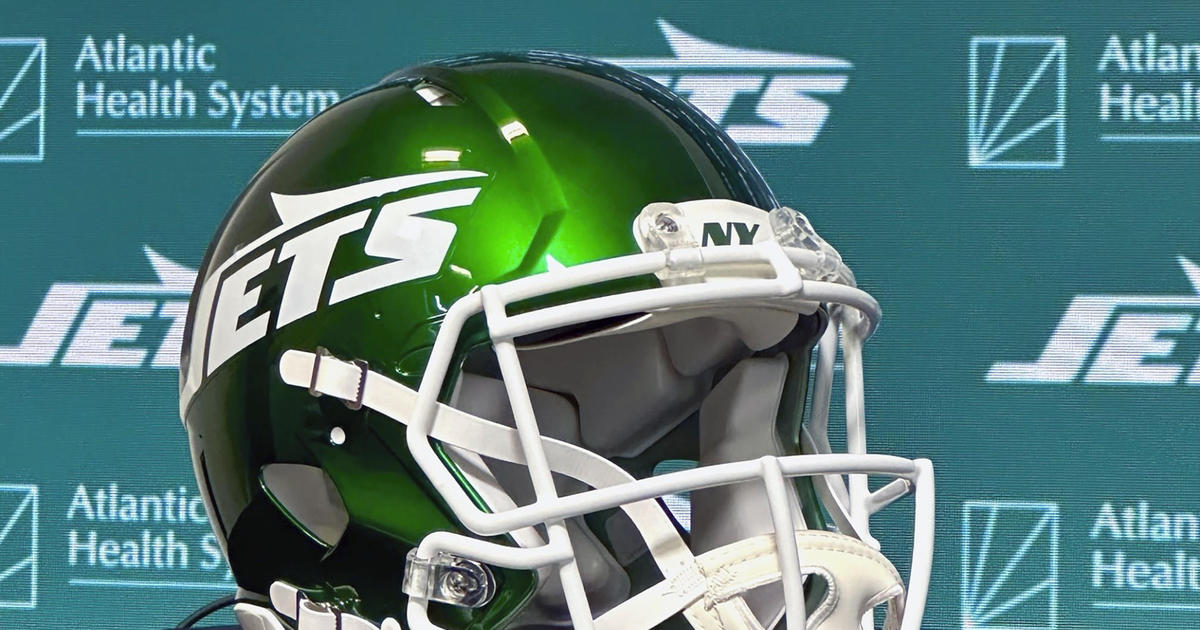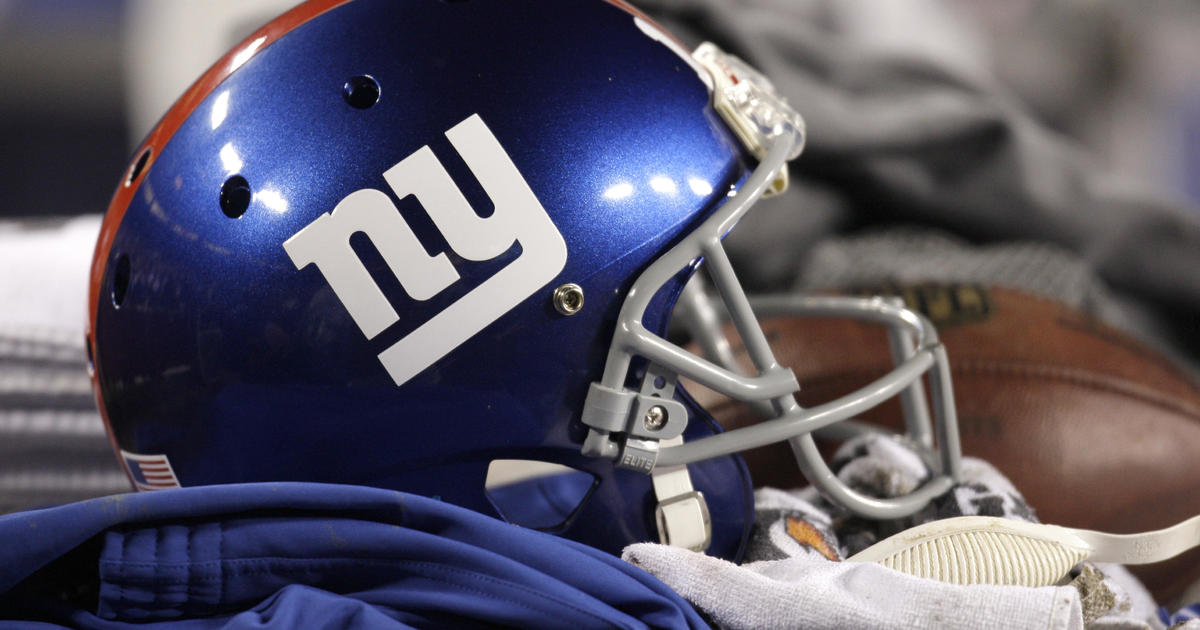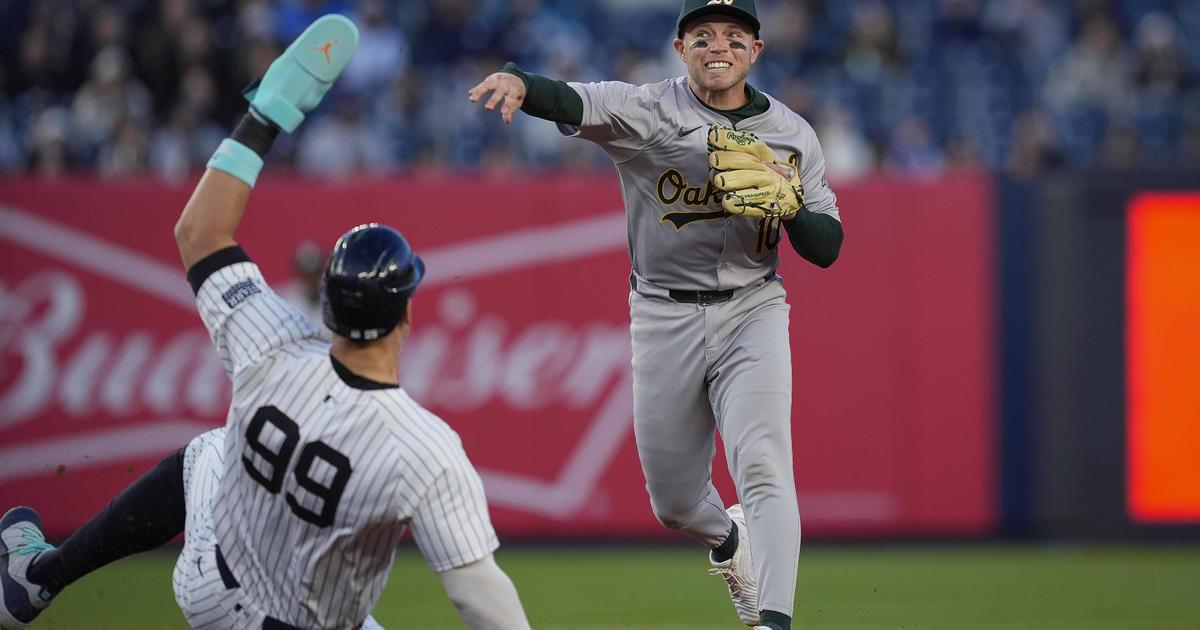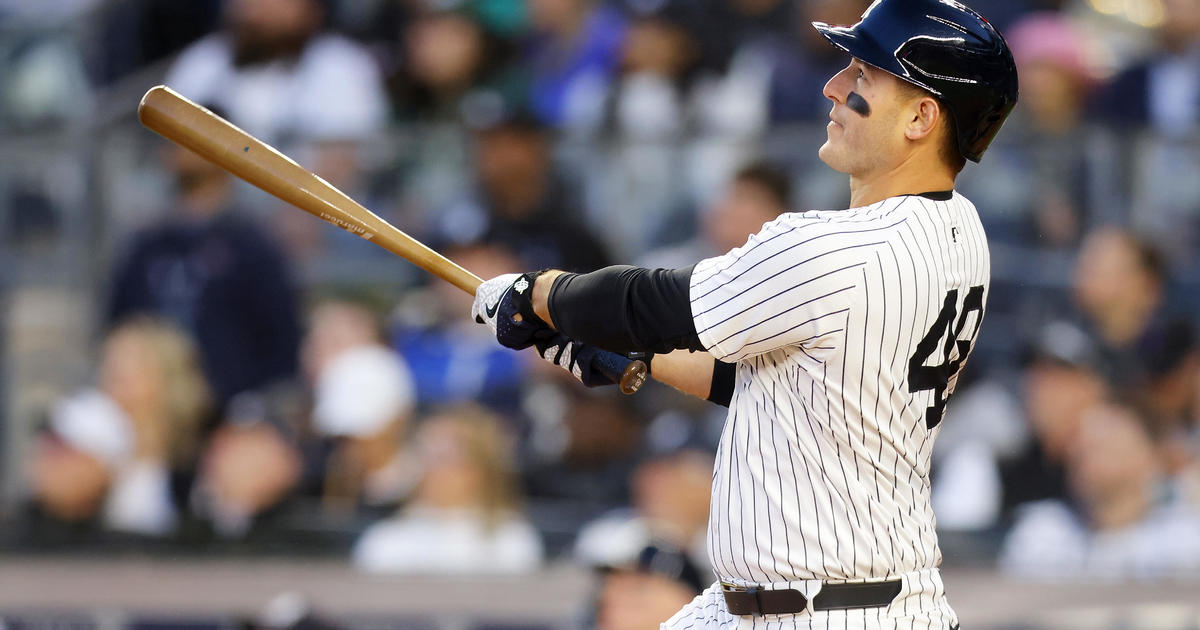Remembering The 1996 Yankees: The Doc-Boss Story You Don't Know
By Jason Keidel
» More Columns
Some sports icons transcend their names. Especially if you played baseball, wore pinstripes, and played in the Bronx, with the interlocking NY stitched, appropriately, across the heart.
Bambino. Sultan of Swat. Iron Horse. Yankee Clipper. The Mick. Scooter. Goose. Mr. October. Donnie Baseball.
But it's even rarer that such a man never played or pitched an inning, for someone who watched from the comfort of a glass cube in the sky. Such is the life of the most famous franchise owner in American history.
George Steinbrenner.
King George. The Boss. Or just George. All muscular, masculine handles for the owner of the New York Yankees, who no longer owns or runs the club, but whose spirit still lords over the most iconic franchise in America.
But who was George Steinbrenner? The stone-hearted monarch who ruled the Yankees with abject fear? The madman depicted comedically by Jerry Seinfeld? Or was he a secret altruist who thrived more on his grueling persona than his actual personality?
Perhaps a little of both.
Rarely has a man, in any arena, been more revered and reviled. There isn't a more polarizing public sports figure, or a man who lived a more hardcore dichotomy than Steinbrenner. His foes regarded him with venomous contempt, while his fans and friends regarded him with paternal adoration.
Which makes one of the oddest couples in baseball history a story of cinematic contours.
Rarely would the names George Steinbrenner and Dwight Gooden fit seamlessly into any family or professional narrative, especially as allies. But the twin-billing made for a storybook saga in 1996, a confluence of timing, talent, and a World Series title, the team's first since the Bronx Zoo mayhem of the late 1970s. Gooden, of course, also came with a fitting handle: Doc.
PHOTO GALLERY: Doc Gooden's 1996 No-Hitter
For all the tales of Steinbrenner's tirades, the turnstile he planted at the manager's door, firing people with the frigid indifference of a mortician, there's a tender tint to the Boss that has long been overlooked and under-reported.
There isn't a better case in point than the Boss's most unlikely project -- the fireballing pitcher who made his name and game not on River Ave, but rather in Flushing, in the second-tier baseball cathedral we called Shea Stadium.
But by the time Gooden arrived in the Bronx, he was no longer a pitching god who owned the Big Apple, whose intimidating visage soared up the flank of a Midtown skyscraper. Gooden was good as gone to many fans, New Yorkers, and most of MLB.
During his suspension from baseball in 1995 stemming from his well-documented substance abuse issues, the Boss became the most unlikely fan, friend, and career counselor.
AN ANGEL ON DOC'S SHOULDER
Ray Negron, special assistant to Steinbrenner for decades, was the one who first envisioned Gooden in pinstripes and approached the Boss with the incongruous idea of bringing him to the Bronx.
"I knew he always liked Doc," Negron told me recently. "He asked if I thought Doc could stay clean. I said we could have a problem, but we would do what we can. George said I would have to babysit him. I said 'let's do it.'"
But Gooden, thinking he had no more currency in MLB until he could prove his pitching and personal wares, didn't think about wearing a local uniform.
"He came to my house asking me if I could get him a gig in Japan," Negron said. "He knew I had strong contacts with the Tokyo Giants."
Rather than call contacts overseas, Negron had a different plan.
"We really intensified his program to show he would do anything he could to stay clean. We went to 12-Step meetings. We even started a radio show in Tampa so that he could express his place in recovery. It was called 'House Calls With Doc.'"
Negron speaks of Steinbrenner with the soft-pitched fondness reserved for a father. While many seem to recall Steinbrenner as a tyrant, Negron said he saw the another side.
"George educated himself, too, on recovery," Negron said, "because he had Darryl Strawberry, whom I also recommended to the Yankees. So, naturally, he was interested in Doc, as a human being."
So they got started long before Gooden made his Bronx debut in 1996.
"After we lost in the 1995 playoffs, George called," Negron said. "Just 24 hours later, we had dinner in Tampa. George showed up with Billy Connors. We never talked baseball. Not one word. We talked about life. It felt like the four of us were letting loose, crying at the dinner table. George was opening up in front of Dwight, not the reverse."
According to Negron, Gooden thought the sermons meant Steinbrenner didn't want him to pitch for the Bombers.
"He didn't need to talk baseball with you," Negron recalled telling Gooden. "He wanted to get to know you."
The next day, Negron, Gooden, and his father met with the Boss and hammered out a deal at the Bay Harbor Inn, a Tampa hotel.
"Doc always had a special place in George's heart," said Negron, who still gets emotional when musing over the Boss, his boss, mentor, and father figure.
"When Doc's father was in the hospital after heart surgery," Negron said softly, clearly in tears. "George came to the hospital, held his hand, and told him he would always take care of his son."
"I THOUGHT I'D BE A MET MY WHOLE CAREER"
For his part, Gooden, the other half of baseball's odd couple, recalls Steinbrenner with equal fondness. Whatever the human alchemy that matches two people, something about Gooden touched Steinbrenner's soul.
"I was kind of nervous," Gooden said about meeting Steinbrenner and then playing for the cross-town Yanks. "I thought I'd be a Met my whole career. It was tough leaving them. But they wanted to cut ties. They wanted to end it, not me. And Mr. Steinbrenner gave me an opportunity."
Even a man who won a Cy Young and a World Series by the time he was 21, in New York City, was awed by the pinstripes.
"I'd never been more nervous than the day I put on a Yankees uniform," Gooden said. "I looked in the mirror for half an hour, just taking it all in."
The second chance was not lost on the former pitching savant.
"I saw it as a chance to redeem myself," Gooden said. "Even though I got suspended, I felt like I had a lot to offer."
The Yanks weren't the only team pining for his services.
"The Marlins wanted me and made me an offer," Gooden recalled. "I could have played with my nephew, Gary Sheffield. But the only place I truly wanted to play was in New York City."
While Steinbrenner's stormy persona frightened most, Gooden said he never worried about the way he'd be received or treated by King George.
"Not at all," Gooden said. "He wants to win. He's a fan, too. If he has a problem he comes to you and never plays games."
Like Negron, Gooden remembers Steinbrenner as a layered man, both an employer and mentor.
"Mr. Steinbrenner is just a tremendous man," Gooden said. "I cried all day after he passed away."
Even still, Gooden got a taste of the Boss's savage hunger for victory.
"After I started the season 0-3, I was with my wife, leaving the ballpark," Gooden said. "So I introduced her to him. And then he asked me when I'd win an (expletive) game."
Gooden recalls the moment with humor, though he said his wife was horrified.
"But if you play hard for him," Gooden said, "he has your back. Even after I retired he was always in my corner."
Gooden also shares a sentiment held by countless New Yorkers.
"There shouldn't be a Baseball Hall of Fame without Mr. Steinbrenner in it," Gooden said.
THAT NIGHT AGAINST SEATTLE
The story of Dwight Gooden and the 1996 Yankees is hollow without any mention of May 14. Despite spending his prime pitching years in Queens, he never delivered the one thing that eluded the Mets for decades -- a no-hitter.
As if to stretch the historical gulf between our two local clubs, Gooden waited until his 30s, and until he landed in another borough, before he painted his pitching masterpiece.
"I still get chills thinking about it," Gooden said. "I was supposed to go home because my father was having open-heart surgery. Joe Torre told me to go home, but I said I'd pitch."
Negron said he recalls the night with equal clarity.
"I remember how hard Doc was sweating," he said. "He must have gone through five jerseys."
"I felt like I was alone all night, on an island, in a daze," Gooden added. "The first three innings I was pacing the dugout, tearing up over my dad. Then, after the sixth inning, I knew I was close."
In mid-sentence, Gooden paused for a solemn moment: "It was the last game my father saw me pitch."
REALLY KNOWING THE BOSS
The no-hitter surely eased any of the Boss's concerns over Gooden's remaining talent. And, true to his word to Dan Gooden, the Boss did all he could to keep Doc Gooden employed and insulated from his more sordid appetites.
If the public didn't see the Boss's softer side, his players often did.
"He was a very caring guy," Gooden said. "He was tough, but a teddy bear at heart. Most owners pocket their money. But all the money George made went back into the team because he loved the fans."
For those who only see Steinbrenner as a surly, snarling corporate titan whose love for his players was strictly commensurate to their ability to help him win, consider Gooden.
"George told Dwight to retire in 2000. He said he'd groom him to be his personal, special assistant," Negron said. "He told Dwight, 'Too many people say I'm crazy to give you these chances. So don't let me down.'"
Gooden's love for Steinbrenner has never waned. Among his many regrets was how and when he left the Yankees after that magical '96 campaign.
"One thing I would do differently was going to Cleveland to pitch for the Indians," Gooden said. "Cost me two rings."
So why then did he leave the budding dynasty?
"In 1997, I had a hernia and missed two months," Gooden said. "They signed Hideki Irabu, and now we had three pitchers -- me, Irabu, and Kenny Rogers -- fighting for a spot in the rotation. I didn't want to root against my teammates, so I asked George to let me out of my contract."
What would he have done differently?
"I'd take that back," Gooden said. "If I didn't land a spot in the rotation, I could have pitched out of the bullpen."
Maybe the script didn't end exactly as planned, but the cinematic theme literally found Tinseltown.
"We actually had meetings with Hollywood," Negron said. "Warner Bros. bought the rights to Doc's story."
And the famed production house picked another iconic New Yorker to play the pitcher.
"Denzel Washington was going to play Doc in the movie," Negron said.
There was no movie, of course, because Dr. K didn't make enough house calls to the people who not only cared for him, but also could make his life as promising as his baseball career must have seemed 30 years ago.
We've heard oblique recollections of George Steinbrenner cutting a fat check for this charity, or that hospital, and how he demanded no mention be made to the media. When you're a billionaire you can do that. But there's not enough mention of the Boss telling tearful tales to a fractured man and his dad, or about the Boss reaching down into the cauldron of AA meetings or drug treatment centers to help someone back onto his feet. It adds to the mystery of the man, and to the contrast of his dueling personas.
Dwight Gooden is not the first or the last great athlete who didn't squeeze out every ounce of his epic talent, or who slid down the slick edges of the American Dream. But there is something about him that gets to us, renders us both hopeful and hurt.
I spent a half-hour on the phone with him, and got a sense of the man and microcosm, the somber duality of a good guy who lived in the dark alleys of human impulse, where the demons congregate. I came to understand why so many adored him, and reached out a helping hand long after his right arm's expiration date.
He never got caught up in his athletic splendor or his stardom. I briefly removed my reporter's hat and told him it was an honor to watch him pitch.
"Thank you," Doc said with soft-throated reticence. You can almost hear him blush before he gives the glory to others. (His pitching revival in 1996? Not his doing, he said. Mel Stottlemeyer, who helped him develop his craft in Queens, was behind his resurgence in the Bronx.)
The last person you'd think would not only have Doc's back but also become a surrogate father, is George Steinbrenner. It speaks to Doc's innate charm and inherent humility that someone with the Boss's hardened professional hide just melted before a pitcher whose best years were well behind him. It's a shame the story didn't end with the no-hitter. Or start with the no-hitter.
"He cried between innings," Negron said of Gooden on that May night in 1996. "Thinking about his father."
Likewise, the Boss worried about his favorite surrogate son.
"George told me, 'When Doc's dad gets really bad I need to know. I need to take care of that young man,'" Negron said.
Indeed, when Doc's dad was at the end, Stenbrenner ditched whatever meeting he was in and rushed to the hospital, to hold hands with a man he only met a few months ago, because he made a promise to take the baton as Doc's father figure.
If only Dwight Gooden cared as much about himself. Or as much as George Steinbrenner loved him.
For more coverage of the 1996 Yankees celebration, please click here.
Follow Jason on Twitter at @JasonKeidel
